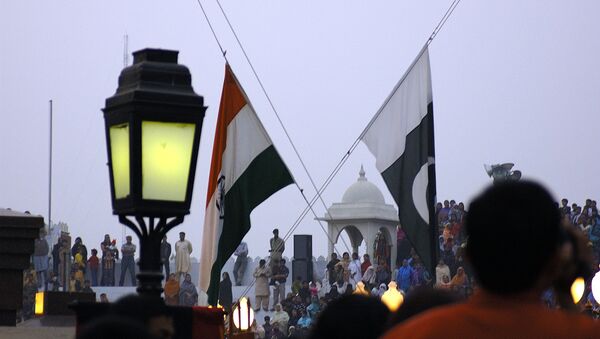Delhi (Sputnik): India's Ministry of External Affairs (MEA) spokesperson Raveesh Kumar clarified that letters from Prime Minister Narendra Modi and the External Affairs Minister S. Jaishankar " to Pakistani officials were merely courtesy replies "as per established diplomatic practice" to congratulatory messages by their Pakistani counterparts.
Kumar stated that India does not have any immediate plans to hold talks specifically with Pakistan citing a non-conducive environment for such talks.
In their messages, they have highlighted that India seeks normal and cooperative relations with all neighbours, including Pakistan, Kumar said.
The spokesperson, moreover, pointed out that the prime minister had also said: "For this, it is important to build an environment of trust, free of terror, violence and hostility."
MEA also emphasised the need for an "atmosphere free from the shadow of terror and violence".
The speculation regarding “India showing willingness to enter into dialogue with Islamabad” began with some Pakistani media selectively mentioning a Pakistan reference and quoting unnamed sources thus, changing the narrative. The Indian media picked up on the news too.
The Pakistani Foreign Ministry spokesperson also cautioned against media speculation and underlined that it was an established diplomatic practice for the leadership to congratulate new officeholders and for them to respond.
"Pakistan’s position on the way forward in Pakistan-India relations was clear and well-known and did not require repetition," said the Pakistani spokesperson, adding that the vision of peace, progress and prosperity in South Asia could be advanced by "peacefully resolving all outstanding disputes, including Jammu and Kashmir, and moving away from the dynamic of confrontation to cooperation".
Pakistan Prime Minister Imran Khan was not among the foreign leaders invited for Prime Minister Modi's swearing-in ceremony on 26 May 2019. This was in contrast with Khan's predecessor Nawaz Sharif, who was invited for the earlier occasion in 2014. Khan, nevertheless, congratulated Prime Minister Modi on his landslide electoral victory over the telephone.
Khan also wrote to Modi earlier this month saying that “talks between the two nations were the only solution to help both countries’ people overcome poverty and that it was important to work together for regional development”.
Pakistan had offered to hold talks on the sidelines of the SCO summit in Bishkek, Kyrgyzstan, but the Indian side expressed reservations and asked Pakistan to take satisfactory action against the groups spreading terror in Indian-controlled Kashmir.
The decades-long row between the two South Asian neighbours scaled to a near war-like situation after the 14 February terror attack in Pulwama district of Jammu and Kashmir where about 40 Indian soldiers were killed. Jaish-e-Mohammed (JeM) had claimed responsibility for the terror act.
Subsequently, on February 26, the Indian Air Force conducted a "non-military pre-emptive" strike near Balakot in Pakistan. It claimed to have destroyed terror infrastructure operated by JeM. This was followed by the Pakistani Air Force entering Indian airspace the next day and engaging in an aerial dogfight with the Indian Air Force.
As things stand now, the impasse continues between these two nuclear-powers of the Indian subcontinent.


